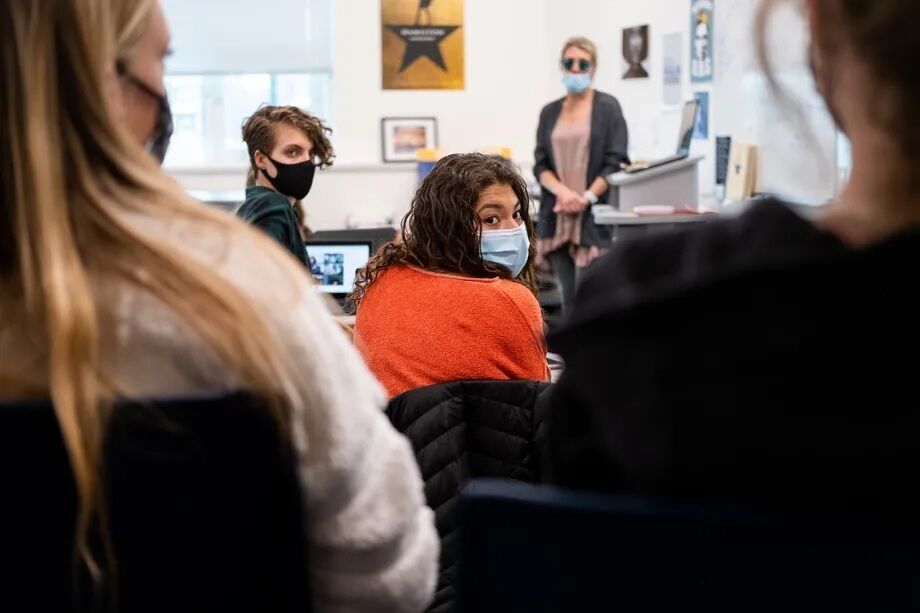Colorado’s COVID cases and hospitalizations should continue to fall over coming weeks, modeling projects
Even with school set to resume this month, COVID-19 hospitalizations and infections in Colorado should decline over the next six weeks, according to modeling conducted by a team of state researchers.
The modeling team, composed of academics from across Colorado, created projections for the coming weeks under several different scenarios, including increases associated with school returning. But under each assumption, the state experienced a “clear, decreasing trend,” state epidemiologist Rachel Herlihy told a group of health officials last week.
Hospitalizations have already declined for two straight weeks, the first multiweek decline since the spring, after they’d increased in May and plateaued since mid-June.
Wastewater sampling, a more reliable indicator now of current trends than reported case totals, also indicates that the situation is improving, Herlihy said.
Colorado schools should take 'layered' approach to COVID-19 prevention, state says
Talia Quandelacy and Bailey Fosdick, both faculty at the Colorado School of Public Health and members of the modeling team, said the projected decline through the end of September “is primarily a consequence of the high levels of infection experienced throughout the spring and summer.”
“For the patterns of the wastewater vs. variant surveillance, we’re finally passing the omicron peak, so we’re seeing declines in wastewater, cases, tests and hospitalization indicators,” Quandelacy and Fosdick wrote in a joint email, “but if we look at the cumulative totals of cases, those trends are similar to the increases in the BA.5 variant proportions because of the larger number of people who have been infected recently with this variant.”
Colorado officials urge uptake of COVID treatments as new variant arrives, hospitalizations fall
Herlihy noted that roughly 13% of all COVID-19 infections that Colorado has experienced since the beginning of the pandemic were reported from mid-May through early August. In contrast, 3% of total deaths were confirmed over that period, and hospital capacity was never threatened.
It’s a sign of how the pandemic has changed, she said.
But what happens beyond September, Herlihy and the two modelers said, is unclear.
“A fall wave is definitely a possibility,” Quandelacy and Fosdick wrote, “and some other modeling groups state this is expected based on previously observed seasonal patterns and variant emergence.”
Still, the projected improvements over the coming weeks stand in marked contrast to last year. Twelve months ago, the delta variant was beginning its monthslong surge, one that would be largely unchecked until omicron arrived in December.
The biggest potential wrinkle, health officials have said, is the emergence of a new variant that outpaces current strains and evades immunity from previous infections. That’s what happened with omicron last year, and delta similarly disrupted predictions of a rosy summer when it laid siege to the Western Slope in June 2021.
Colorado among best in nation for vaccinating youngest kids, but rates still lag previous waves
Quandelacy and Fosdick said that while COVID-19 will be monitored similarly to influenza moving forward, “there’s still a lot we don’t know about COVID, particularly the long-term consequences of infections.”
“We’re still trying to understand the impacts of long-COVID at a population level,” they said. “COVID has surprised us a number of times in the past, so it is best that we remain nimble-minded and maintain adaptable policies moving forward.”
Meanwhile, vaccine developers Pfizer and Moderna are working on omicron-specific booster doses. Those could be available as early as September, according to Heather Roth, manager of the state health department’s immunization branch.





